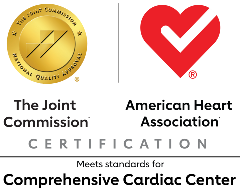Heart-Healthy Lifestyle Tips
How to Get a Healthier Heart
Cardiovascular disease kills more people each year than all types of cancer combined. It’s the nation’s No. 1 killer. Although there are some risk factors you can’t control – such as your age, sex, race and family history – there are lifestyle habits you can control.
At the Florence Wormald Heart & Vascular Institute at St. Elizabeth, we’re dedicated to helping you get a healthier heart. In fact, we’ve made it our goal to reduce heart-related deaths in Northern Kentucky by 25% between 2015 and 2025.
Reverse Heart Disease
When you make these small changes, it can have a big effect on your health. We offer a wide range of classes that help you lead a heart-healthy lifestyle. Please call (859) 301-WELL (9355) to learn more.
- Eat Better – Eat lots of fruits and vegetables, whole grains, fat-free and low-fat dairy products, lean meats and fish. Avoid foods that are high in sugar, salt and trans fats.
- Be More Active – Regular exercise helps control your weight, relieves stress, improves circulation and can lower your risk of heart disease, stroke, type 2 diabetes and more. It helps moderate cholesterol, blood pressure and blood sugar levels.
- If you smoke, quit – Smoking is the most preventable cause of premature death in the U.S. It increases your risk of atherosclerosis, which can lead to heart disease and stroke. We offer a free smoking cessation program to help you quit.
- Get enough sleep – Researchers have learned that people who get sufficient sleep are less likely to experience cardiovascular disease. The optimal amount of sleep for adults is seven to nine hours.
- Manage weight – Maintain a body mass index (BMI) of 25 or by eating right and exercising. Talk to your doctor about how to lose weight.
- Control cholesterol – High cholesterol puts you at greater risk for heart disease and stroke. Be aware of your numbers, eat healthy and exercise to lower your risk.
- Manage your blood pressure – High blood pressure is the most significant risk factor for heart disease. One of every three adults has hypertension and many are unaware. Know your numbers and track your progress.
- Reduce blood sugar – Most of the food you eat is turned into glucose (blood sugar), which your body uses for energy. Over time, high blood sugar levels can damage your heart, kidneys, eyes and nerves.

Learn More About Heart Care
For questions or additional information about Heart Health, please call (859) 301-WELL (9355).


